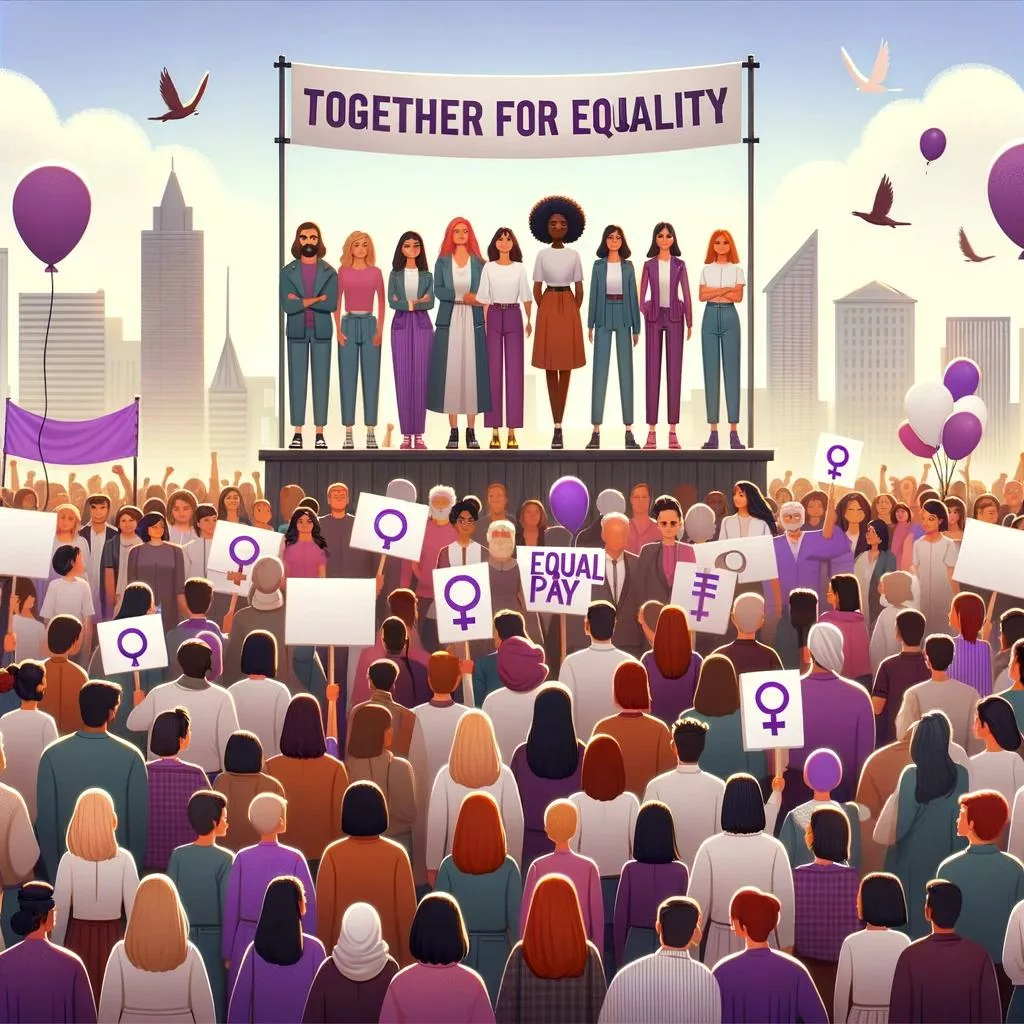In recent years, gender income inequality has taken center stage in discussions about social justice and economic reform. This long-standing issue, deeply rooted in centuries of patriarchal structures and gender stereotypes, continues to affect millions of women and non-binary individuals worldwide. Despite significant progress in various sectors, the gap between earnings of men and women persists, manifesting not just in numbers but in the everyday experiences of those at the disadvantageous end of this divide.
The Reality of Gender Income Inequality
The gender pay gap is a complex issue influenced by a myriad of factors including discrimination, societal norms, and the undervaluation of roles typically dominated by women. According to the World Economic Forum’s 2020 Global Gender Gap Report, at the current rate of change, it will take another 257 years to close the economic participation and opportunity gap between genders. Women, on average, earn approximately 77 cents for every dollar earned by men, a disparity that is even greater for women of color, women with disabilities, and those in lower-income brackets.
Several reasons contribute to this inequality, including but not limited to:
- Occupational Segregation: Women are often found in lower-paying professions and are underrepresented in high-paying fields.
- Gender Bias: Discriminatory hiring practices and biases in promotions and raises.
- Work-Life Balance: The disproportionate responsibility of women in unpaid care work limits their availability for full-time or higher-paying opportunities.
The Fight for Equality
The fight against gender income inequality is multifaceted, requiring policy reforms, corporate responsibility, and societal change. Efforts to close the gap include advocating for equal pay for equal work, improving access to education and training for women and non-binary individuals, and fostering an inclusive work environment that accommodates diverse life choices and responsibilities.
Legislation plays a crucial role. For example, the adoption of equal pay laws and policies that support work-life balance, such as parental leave and flexible working hours, can significantly impact closing the gap. Moreover, transparency in pay scales and regular audits can help hold corporations accountable.
Yet, beyond policy and workplace reforms, cultural and societal shifts are essential. Challenging gender stereotypes, encouraging mentorship, and supporting women and non-binary individuals in leadership positions can cultivate an environment where gender income equality can thrive.
Fostering Connections Through Lefty: A Dating App for Progressives
In the midst of these challenges and efforts, connecting with like-minded individuals who share a commitment to social justice can be incredibly empowering. This is where Lefty, a dating app specifically designed for progressives, comes into play. Lefty is not just a platform for finding romantic connections; it’s a community where individuals who are passionate about issues like gender income inequality can meet, share ideas, and support each other’s activism.
Lefty stands out by offering a space that prioritizes shared values and mutual respect. Its user base comprises people who understand the importance of fighting for equality, making it an ideal platform for those who not only seek a partner but also a fellow advocate in the journey towards social change.
Why Choose Lefty?
- Shared Values: Connect with individuals who share your commitment to social justice, including gender income equality.
- Supportive Community: Find a supportive network of people ready to engage in meaningful conversations and actions against inequality.
- Authentic Connections: Beyond the superficial, Lefty encourages deeper connections based on shared beliefs and mutual respect.
Conclusion
Gender income inequality remains a pervasive issue, demanding concerted efforts from all sectors of society. While legislative and corporate reforms are crucial, the power of community and shared values should not be underestimated. Apps like Lefty offer more than just the chance for romance; they provide a platform for those committed to change to connect and strengthen their collective voice against inequality.
In the end, addressing gender income inequality is not just about adjusting pay scales; it’s about transforming societal norms and ensuring that everyone, regardless of gender, has equal opportunities to thrive. Through solidarity, advocacy, and the forging of meaningful connections, we can all contribute to the fight for a more equitable world.
Don’t forget to follow Lefty on our social media

















